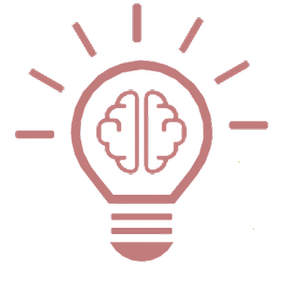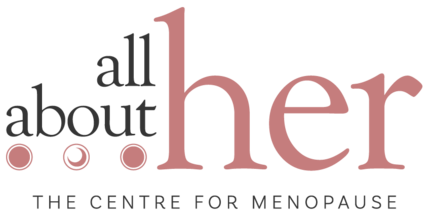Perimenopause: Sleep & Fatigue
Sleep is the foundation of health and wellbeing. During healthy sleep, we move through light, deep (slow wave) and dream (REM) stages in 90-minute cycles. Think of it like plugging yourself in for a full recharge, your body and brain repair, reset and restore.

Functions of Sleep
Good Healthy sleep has several key functions to maintain optimal health and wellbeing, including:
Restoration : allows the body to repair tissues, muscles, and cells that have been damaged during waking hours; it’s time for the body to recover and rejuvenate.
Memory Consolidation : helps to solidify and organise memories obtained throughout the day. It also enhances learning and cognitive function.
Brain Function : helps regulate neurotransmitter levels and the strength of brain connections required for tasks like attention, decision-making, and problem-solving.
Physical Health : linked to a lower risk of various health conditions, including heart disease, diabetes, obesity, and immune system malfunction
Metabolic Processes: helps to regulate hormones that control appetite, metabolism, and stress. Lack of sleep can lead to disrupted hunger and fullness cues, and increased appetite.
Emotional Well-being: plays a crucial role in regulating emotions and mood. Lack of sleep can lead to irritability, mood swings, increased stress, and a decreased ability to cope with daily challenges.


Sleep in Perimenopause
Perimenopause can negatively impact sleep in many different ways, including:
Hormonal Changes: can lead to a disruption of the body's internal clock and sleep-wake cycle regulation
Hot Flushes and Night Sweats: can disrupt sleep by causing awakenings throughout the night, leading to fragmented and less restorative sleep.
Insomnia : can contribute to insomnia, making it difficult to fall asleep or stay asleep throughout the night.
Mood : mood swings, anxiety, and depression can all cause lying awake worrying, and interfere with sleep quality.
Physical Symptoms : symptoms including joint pain, heart palpitations and increased urinary frequency can also disrupt sleep patterns.
Sleep Disorders: some may develop sleep disorders such as restless legs syndrome, sleep-disordered breathing, fibromyalgia and insomnia during perimenopause.
It’s no wonder many women feel exhausted during this stage. Fatigue in peri/menopause isn’t just “being tired”. It’s a deep weariness that affects thinking, emotions and daily life.

Practice Good Sleep Hygiene
Recognising that poor sleep can exacerbate menopausal symptoms and that waking during the night might trigger hot flushes and other symptoms of perimenopause provides an incentive to approach sleep holistically. Try creating a conducive sleep environment and a wind-down routine by:
Natural light first thing in the morning: helps to “wake up” your sleep-wake cycle and help “switch on” the sleep cycle in the evening.
Exercising daily but not within two hours of bedtime
Reducing or eliminating caffeine and alcohol: limit caffeine from the afternoon onwards and minimise alcohol, particularly within 3 hours of bedtime.
Eliminating blue light exposure and avoid screen time for at least an hour before bed.

Establishing a relaxing pre-sleep routine with meditation, journaling, calming yogas, breathing exercises or reading.
Keeping your bedroom dark, cool and quiet use an eye mask and earplugs where necessary.
Reserving the bedroom for sleep and sex no TV, screens or anything too stimulating.
Taking a warm shower and warming the body
subsequently cools it, stimulating sleep onset with a decrease in core body temperature.
Maintaining a consistent sleep schedule with similar sleep and wake times, even on the weekend
Avoid clock watching laying awake feeling frustrated or watching the clock can contribute to increasing stress about sleep and sleep quality. Instead, move outside of the bedroom and do something boring until sleepiness returns.
Be Kind To Yourself
If your sleep is constantly disrupted, it’s easy to feel frustrated and hopeless. Try journaling before bed—write down what’s on your mind, separate what you can control from what you can’t, and give yourself permission to let go.
Persistent fatigue is also a reminder to lower expectations. You don’t have to juggle everything at once. Self-compassion and realistic boundaries are essential tools in peri/menopause.

When to Seek Support
If your sleep is constantly disrupted, it’s easy to feel frustrated and hopeless. Try journaling before bed, write down what’s on your mind, separate what you can control from what you can’t, and give yourself permission to let go.
Persistent fatigue is also a reminder to lower expectations. You don’t have to juggle everything at once. Self-compassion and realistic boundaries are essential tools in peri/menopause.
And here's a bit of important trivia - CBT-I (Cognitive Behavioural Therapy for Insomnia) is considered first line treatment. So if the sleep tips above haven't worked, consider making an appointment with a psychologist who can support you in this way.

Ready to feel rested again? If sleep and fatigue are affecting your life, don’t wait it out. Book an appointment with one of our menopause-informed clinicians at All About Her and get tailored strategies for your sleep, energy and overall wellbeing.
*All About Her - The Centre for Menopause acknowledges that all people born with ovaries and who live long enough will experience the menopause transition. This includes cisgender women, transgender men, non-binary individuals, and any other individual with ovaries. We use the terms
individuals/people to be inclusive of the many who do not identify as women, but who will nonetheless experience this significant life stage.
Disclaimer: The information presented is for general understanding only and should not substitute professional medical advice. If you are concerned about your health, talk to your doctor or healthcare team for personalised guidance.
© All About Her Centre 2024
